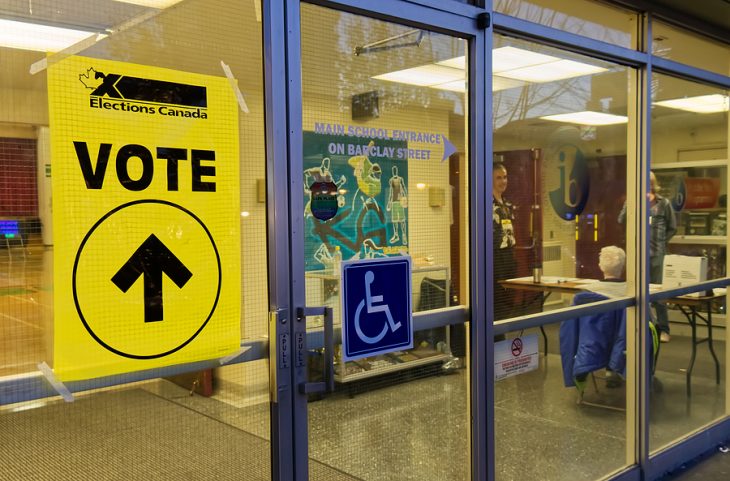
Three parties, three different solutions
By Amanda Oye
THE LIBERALS, CONSERVATIVES AND NDP all agree there is an issue with access to high-speed Internet in Canada, particularly in the country’s rural, remote and Indigenous communities, and that cellphone and Internet bills in the country are too high. All three parties have different ideas on how to fix these problems.
Access to high-speed Internet
All three parties agree high-speed Internet is essential and want to make sure everyone in the country has access to it. Rural, remote and Indigenous communities are a high priority in this regard. The parties, however, differ in their expectations of when this will happen and how.
The Liberal party’s platform outlines a “use it or lose it” approach to broadband infrastructure to ensure companies “that have purchased the rights to build broadband actually do so.” This approach will require large national carriers “to accelerate the roll-out of wireless and high-speed internet in rural and northern Canada by progressively meeting broadband access milestones between now and 2025. If these milestones are not met, we will mandate the resale of spectrum rights and reallocate that capacity to smaller, regional providers,” the platform reads.
The platform does not specify what the milestones are, but Budget 2021 indicates the Liberals want to ensure 98% of the country has access to high-speed broadband by 2026 and 100% of the country has access by 2030.
The 2026 and 2030 deadlines indicated in the budget are further away than both the Conservative and the NDP proposals, both of which state the parties want to connect everyone in the country by 2025, according to their official platforms. Both parties have indicated they believe the Liberals are moving too slowly and that their respective parties can accomplish the same goal quicker.
The Conservatives, in their platform, say they “will accelerate the delivery of broadband from coast to coast to coast” by speeding up the spectrum auction process “to get more spectrum into use.” They will also “apply “use it or lose it” provisions to ensure that spectrum (particularly in rural areas) is actually developed, with auction revenue dedicated to our digital infrastructure plan,” their platform says.
The NDP’s official platform is short on details about how they plan on achieving their goal of ensuring all Canadians have access to high-speed Internet in four years. The party’s platform does, however, say that to meet their access and affordability goals they will take steps towards creating a Crown corporation, which would compete with Canada’s telecom providers.
Affordable Internet and cellphone services
Ensuring access to high-speed Internet is one thing, ensuring that access is affordable is another.
In 2019, the Liberals promised to reduce cell phone bills by 25%, saving families of four nearly $1,000 a year. The goal was to “bring Canada in line with prices across the G7 and Australia,” according to the party’s 2019 platform.
To do this, they planned to work with telecoms “to offer plans comparable to global prices, plus an unlimited family plan” as well as “encourage competition by expanding the entry of Canadian Mobile Virtual Network Operators (MVNO) in the market,” the plan says.
The government issued a press release in late July that said that said wireless prices were down by 9%-25% for most 2GB and 6GB plans compared to benchmarks from early 2020.
The government indicated the three major wireless providers and their flanker brands were expected to offer 2GB and 6GB plans that are 25% cheaper than the benchmarks in two years. “If they do not meet this goal, the government will look to other regulatory tools to further increase competition in the marketplace and help reduce prices,” the press release said.
The Liberal’s recently released platform does not say anything about the party’s plans for internet and cellphone affordability if re-elected.
The Conservatives, however, put forth a four-part affordability plan in their 2021 platform. The party intends to reduce Canadian cellphone and Internet bills by holding “big telecom service providers accountable for anti-competitive behaviour and practices that hurt consumers.”
They also plan on promoting competition by allowing foreign telecoms “to provide services to Canadian customers, provided that the same treatment is reciprocated for Canadian companies in that company’s country,” according to the platform.
The Conservatives further intend to build necessary infrastructure by 2025 and to “promote investment in communication facilities by local and regional communities and businesses,” which the party says, “will reduce local and regional dependence on national telecommunications giants.”
Along with creating a Crown corporation, the NDP’s plan includes making sure “providers offer a basic plan for wireless and broadband that is comparable with the affordable plans that are available in other countries,” their platform reads.
The party will also put an end to surprise bills by requiring “companies to offer unlimited wireless data options at affordable rates, as exist elsewhere in the world, and abolish data caps for broadband internet.”
As Cartt.ca recently reported, at a press conference in Windsor, NDP party leader Jagmeet Singh said he wants to ensure Canadians have access to real unlimited Internet plans “not this fake unlimited where once you reach a certain point your Internet slows down.” Singh also committed to working with the CRTC to cap cellphone and Internet fees.
For more, you can view the Conservative’s platform here, the Liberal’s platform here, and the NDP’s platform here.




